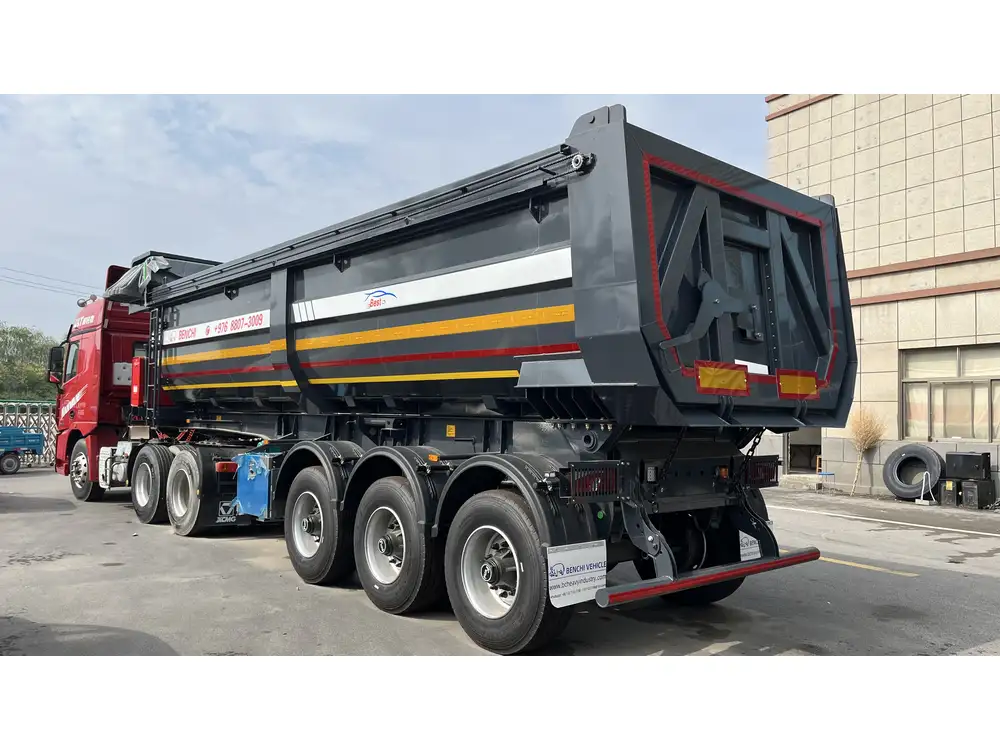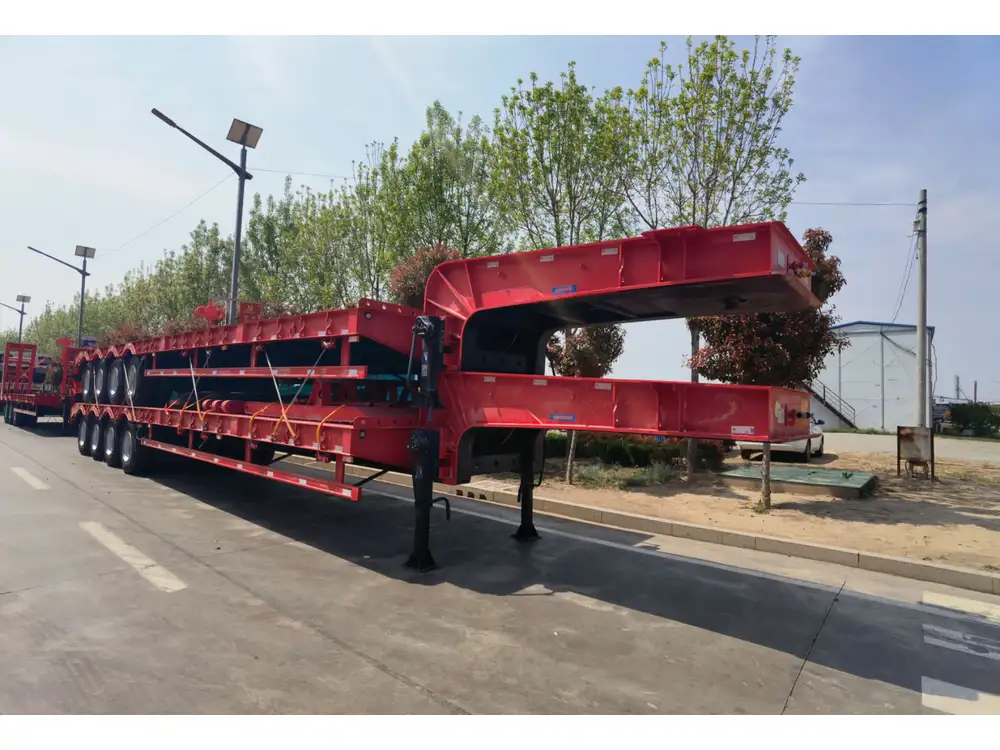Losing license plates, especially for semi-trailers, can be a daunting experience. The liability not only affects the owner but can also impact operational efficiency and compliance with transportation regulations. Therefore, understanding the process of reporting lost plates is crucial for anyone involved in fleet management and logistics. In this guide, we will dissect the steps to report lost plates, potential repercussions, and preventative measures, all structured to facilitate easy comprehension and action.
Understanding the Importance of License Plates
The Role of License Plates in Commercial Trucking
In the realm of commercial trucking, license plates serve various essential functions:
- Identification: Plates help in identifying vehicles for law enforcement and regulatory purposes.
- Compliance: Displaying valid plates is a legal requirement across jurisdictions.
- Accountability: License plates link vehicle operations to specific owners, crucial in case of traffic violations or accidents.

Consequences of Not Reporting Lost Plates
Failing to report lost plates can lead to numerous complications, such as:
| Consequences | Description |
|---|---|
| Fines and Penalties | Regulatory bodies impose fines for operating a vehicle without valid plates. |
| Legal Issues | Legal trouble can arise if the lost plates are misused by others. |
| Insurance Complications | Insurance claims may be jeopardized if the plates are not reported, leading to coverage voids. |
| Operational Delays | Fleet operations can be halted, affecting delivery schedules and revenue. |
Immediate Steps to Take After Losing Semi-Trailer Plates
Step 1: Assess the Situation
Before setting out to report your lost plates, take time to:
Determine the Scope:
- Are both plates missing?
- Was the loss due to theft or misplacement?
Gather Evidence:
- Check your documentation for any information regarding the plates, including model and registration numbers.

Step 2: Secure the Vehicle
- Do Not Operate: Avoid using the semi-trailer until the situation is rectified to prevent legal complications.
- Park Safely: Ensure the vehicle is parked in a secure location to deter any potential theft or vandalism.
Reporting Lost Plates: Step-by-Step Process
Step 3: Contact Your State’s Department of Motor Vehicles (DMV)
- Find Your Local DMV Contact: Use the official website or a phone directory.
- Provide Essential Information:
- Vehicle identification number (VIN)
- Type of vehicle
- License plate number (if available)
- Reason for loss (misplacement or theft)

Step 4: File a Police Report (If Necessary)
In cases of suspected theft, it is advisable to:
- Visit Your Local Police Station: Inform them of the included vehicle details.
- Request a Copy of the Report: This may be required for DMV processing.
Step 5: Complete Required Forms
Most DMVs offer forms for lost plate reporting. Ensure you:
| Required Information |
|---|
| – Complete the lost plate application form |
| – Provide identification (driver’s license or other official ID) |
| – Pay the necessary fee (varies by state) |
Step 6: Receive Temporary Plates
After reporting the loss, request temporary plates. This will allow you to operate legally while waiting for your new plates. Make sure to understand:
- Duration: Temporary plates are often valid for a limited time.
- Usage Restrictions: Confirm any restrictions on the use of temporary plates.

Replacing Lost Plates
Step 7: Wait for New Plates
Once your application is submitted, you will receive an estimated timeline for receiving your new plates. Keep track of:
- Any communication from the DMV
- Potential operational adjustments during this time
Step 8: Proper Installation
When your new plates arrive:
- Correct Installation: Ensure plates are properly affixed to the semi-trailer in accordance with your state’s guidelines.
- Verification: Take a moment to double-check all details on the new plates for accuracy.

Preventative Measures for Future Losses
Best Practices for Safeguarding License Plates
- Regular Inspections: Schedule routine checks to ensure all plates are securely attached.
- Utilize Anti-Theft Devices: Consider installing security systems that deter theft.
- Document Everything: Maintain thorough records of plate numbers and vehicle identification for easy reference.
Recommended Products
| Product | Use |
|---|---|
| Plate Locking Mechanisms | Prevents unauthorized removal |
| GPS Tracking Systems | Monitors vehicle location and security |
| Anti-Theft Alarm Systems | Alerts you to unauthorized access |

Understanding Legal Implications
Compliance Risks
Operating without valid plates exposes businesses to legal action. Be aware of:
- State and Local Laws: Each jurisdiction may have unique regulations regarding lost plates.
- Penalties for Non-Compliance: Familiarize yourself with the financial and legal consequences.
Insurance Considerations
- Notify Insurers: Always inform your insurance company after reporting lost plates. This ensures protection in case of vehicle misuse.
- Review Coverage: Understand how your insurance policy deals with incidents related to lost license plates.

Conclusion: The Path Forward
Experiencing the loss of semi-trailer plates can be a stressful ordeal. However, taking decisive steps—reporting to the DMV, ensuring police involvement if necessary, and replacing the plates promptly—will mitigate potential complications. Emphasizing good practices and implementing preventative measures can safeguard against future occurrences, ensuring continuous compliance and operational efficiency.
Always be proactive in understanding your responsibilities and rights regarding semi-trailer plates to protect your investment and avoid future disruptions. Reporting lost plates is not merely about compliance; it’s a crucial step in maintaining the integrity and functionality of your fleet.
Additional Resources
- National Association of Motor Vehicle Administrators for state-specific regulations and guidelines.
- [Your State DMV Website](insert link here) for detailed processes and forms related to lost plate reporting.
By following these comprehensive steps and being vigilant about your semi-trailer operations, you can ensure a swift recovery from any unfortunate loss, maintaining the integrity of your logistics and transportation efforts moving forward.



